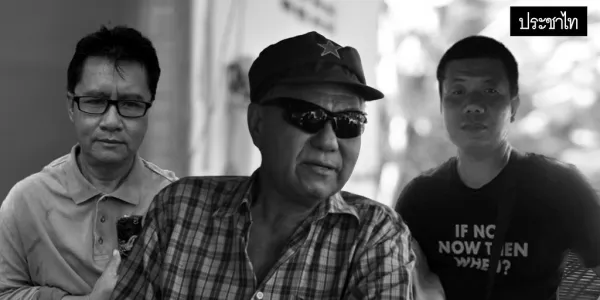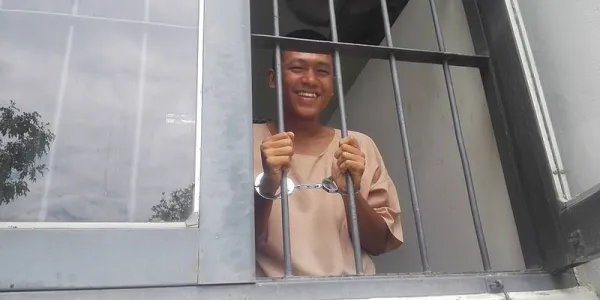By Reporters Without Borders |
<div>Berlin, 7 March 2018 – Ahead of World Day Against Cyber Censorship on March 12th, creative agency DDB Germany and digital production company MediaMonks have created The Uncensored Playlist for Reporters Without Borders Germany (Reporter ohne Grenzen), which uses music as a loophole to share censored news stories in countries where freedom of speech is under attack. </div>
<div> </div>
<div><img alt="" src="https://c1.staticflickr.com/5/4785/40740056542_cb12bcb175_o.png" /></div>
<div> </div>
<div>Focusing on the cen
</div>
<p>After five years of legal struggle, a court has confirmed a ban on a film adaptation of Shakespeare’s play ‘Macbeth’, which touches on sensitive historical topics.</p>
<p>On 11 August 2017, the Administrative Court maintained a ban on ‘Shakespeare Must Die’, a political film with references to the 6 October 1976 student massacre and the political violence during the red shirt demonstrations in 2009.</p>
<p>The leading character of the movie, called ‘Dear Leader’, is believed to be based on the controversial former Prime Minister Thaksin Shinawatra. </p>
By John Draper |
<p dir="ltr">With a secret military court again denying bail last week to Jatuphat Boonpattararaksa, a law student from Khon Kaen University in Northeast Thailand, the regime is adopting show trials targeting university students, human rights activists, and academics. In effect, it is engaging in cyberwarfare against its own people, cementing a surveillance state. In addition, the military state mentality presents a clear and present threat to Thailand’s overseas image and economy.</p>
<p>The junta’s National Reform Steering Assembly (NRSA) has given the green light to media reform proposals which will tighten government control and surveillance over online media.</p>
<p>On 3 July 2017, the NRSA voted 144-1 in favour of a report compiled by its Social Media Reform Subcommittee. Two members abstained.</p>
<p>The Thai authorities have blocked access to a youtube clip of the Charlie Chaplin's movie ‘the Great Dictator’.</p>
<p>On 21 June 2017, a Facebook user reported that an access to a Youtube clip of the movie ‘<a href="https://en.wikipedia.org/wiki/The_Great_Dictator">the Great Dictator</a>’ was blocked by the Ministry of Digital Economy and Society according to the <a href="https://web.facebook.com/lawyercenter2014/posts/1355420027841181">Thai Lawyer for Human Rights (TLHR)</a>. </p>
By Foreign Correspondents' Club of Thailand |
<p>On this World Media Press Freedom Day, the professional membership of the Foreign Correspondents' Club of Thailand stands by its colleagues in Thailand's domestic media as they struggle to maintain professional standards and editorial independence in particularly challenging times.<br /><br />The National Reform Steering Assembly's draft Bill on the Protection of Media Rights lumps all 'media' together indiscriminately and misguidedly. </p>
<p>The YouTube channel of an anti-junta journalist who fled to the US after the 2014 coup d’état has been blocked from audiences in Thailand. </p>
<p>On 20 April 2017, the YouTube channel <a href="https://www.youtube.com/channel/UCpqKFS9qHhYCE_k6_wVQdBw">‘Jom Voice’</a> of Jom Petpradab, a veteran journalist now living in self-exile in the US, was found blocked.</p>
<p>“[This channel] cannot be watched from your country!” reads the statement on YouTube.</p>
By Reporters Without Borders (RSF) |
<div>Reporters Without Borders (RSF) condemns a Thai government ban, imposed yesterday, on any online contact or interaction with three prominent critics of the regime – a foreign journalist and two academics – and urges all Facebook users beyond the government’s reach to share content from the Facebook accounts of these three critics. The ban’s three targets are Andrew MacGregor Marshall, a well-known Scottish journalist who used to be based in Bangkok, and Thai academics Somsak Jeamteerasakul and Pavin Chachavalpongpun.
</div>
<p>Despite opposition from media groups, the junta is proposing a law to punish unlicensed journalists with two years in prison. </p>
<p>On 10 April 2017, Maj Gen Pisit Pao-In, chairman of the media subcommittee of the junta’s National Reform Steering Assembly (NRSA), announced that under the <a href="https://prachatai.com/english/node/6953">new Media Bill</a>, media workers who do not possess official licenses could face two years’ imprisonment, or a fine of 60,000 baht, or both. </p>
<p>After a seven-day ban by the National Broadcasting and Telecommunications Commission (NBTC), Voice TV is back on air, but for the time being there will be no programmes critical of the authorities.</p>
<p>After the NBTC 7-day ban came to an end on 4 April 2017, Prateep Kongsib, Director of Voice TV’s news programme, published a statement on the Voice TV website called <a href="http://www.voicetv.co.th/blog/476946.html">‘The Return of Voice TV (Again)’</a> .</p>



